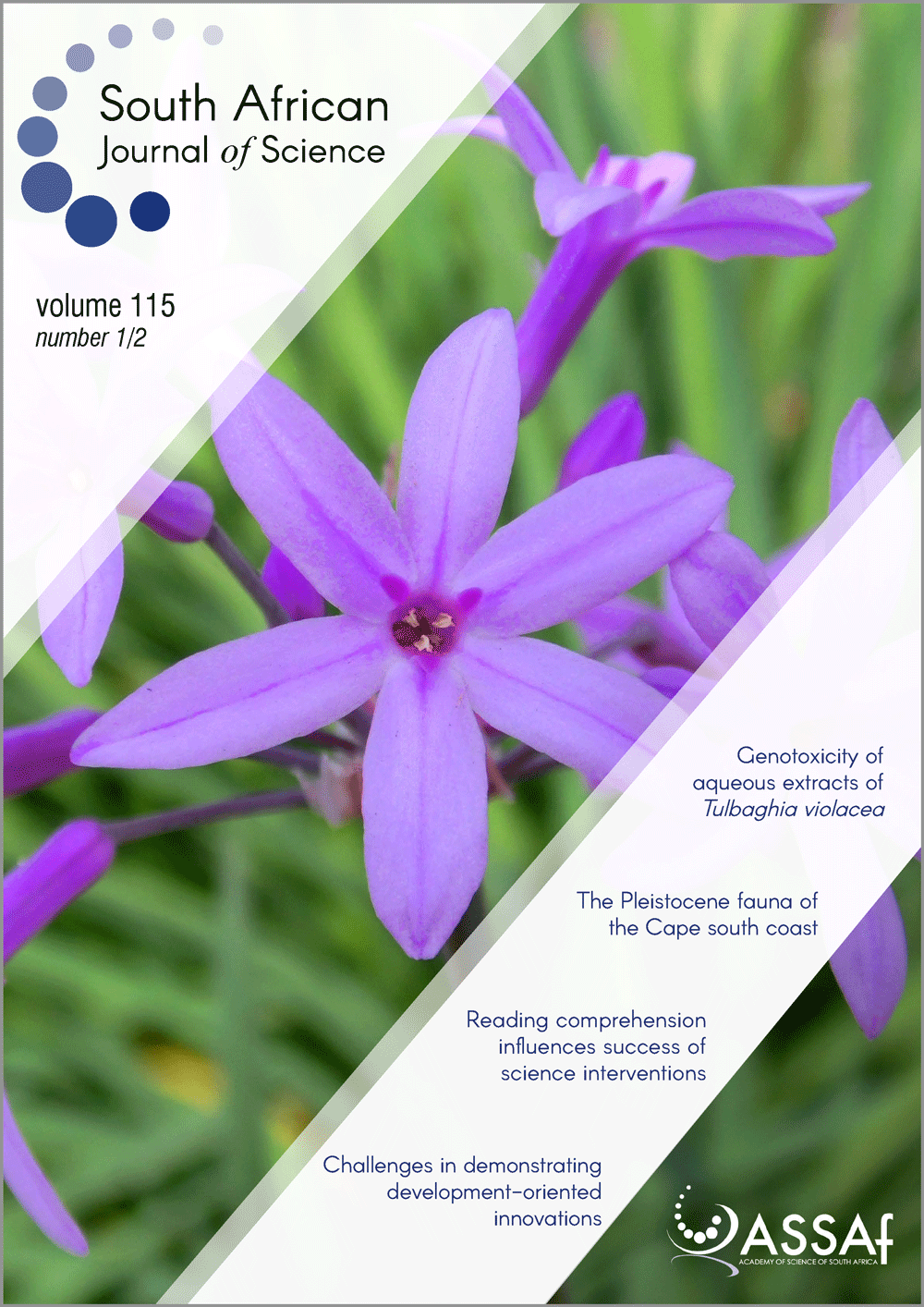Comparing mathematics knowledge of first-year students from three different school curricula
DOI:
https://doi.org/10.17159/sajs.2019/4652Keywords:
basic mathematics, school mathematics curricula, tertiary mathematics preparednessAbstract
Mathematics forms an integral part in the training of scientists and engineers. In recent history the South African school system has experienced several changes in school curricula. In 1994 the traditional knowledge based curricula were replaced by an outcomes-based curriculum. Owing to implementation problems which resulted in resistance from teachers and the general public, revisions followed of which the National Curriculum Statement (NCS) and Curriculum Assessment Policy Statements had the most direct effect in terms of preparation for tertiary mathematics. We report here on an investigation of the basic mathematical knowledge of three student cohorts representing three curricula, namely the last cohort that received the traditional knowledge-based curriculum, and the first cohorts that received the two outcomes-based curricula. The results indicate that changes in the mathematical content of the curricula did not impact negatively on the basic mathematical knowledge of students enrolled for tertiary mainstream mathematics. The only exception is Euclidean geometry, for which certain topics were transferred to an optional paper in the NCS curriculum.
Significance:
- The introduction of outcomes-based curricula in South Africa initiated a discourse on the preparedness of first-year students for programmes with mainstream mathematics.
- The availability of a homogeneous set of samples and a uniform test provided a unique opportunity to compare the basic mathematical knowledge of first-year natural science and engineering students entering university from three different exit-level school curricula.
Published
Issue
Section
License

All articles are published under a Creative Commons Attribution 4.0 International Licence
Copyright is retained by the authors. Readers are welcome to reproduce, share and adapt the content without permission provided the source is attributed.
Disclaimer: The publisher and editors accept no responsibility for statements made by the authors
How to Cite
- Abstract 741
- PDF 1581
- EPUB 261
- XML 435











.png)